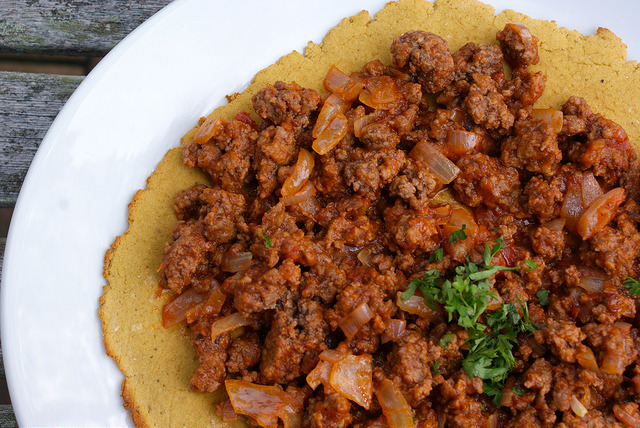
I’m not a huge fan of elimination diets. Firstly, I don’t like restrictions. If you tell me I can’t eat a particular something, it’s a sure-fired way to make sure I will be fixated on that forbidden food all day or until I break down and devour it with abandon.
Secondly, I feel like many folks jump on an elimination band wagon as a desperate search for a solution to weight or health issues. So you may be surprised to learn that…
I LOVE a grain free diet.
Here are a few reasons why a grain free diet works for me:
- I maintain a healthier body weight, and I am less likely to overeat when bread, pasta, rice, corn, potatoes, quinoa, oats, etc. are not on my plate.
- I have more energy, and my moods are more even without grains.
- My skin is happier – less acne, no eczema, and (dare I say) less wrinkles when I don’t eat grains.
- I eat more vegetables when I cannot easily reach for bread with my meals.
- My whole body seems to function better – digestion, hormones, even the quality of my sleep.
- I eat more slowly, enjoying my food and tasting every bite.
Now, for some folks with more pronounced health issues, complete elimination of grains and other foods (such as dairy) is necessary. Children on the autism spectrum or experiencing learning delays or behavioral issues will often thrive with a completely grain-free/dairy-free diet. Adults with autoimmune conditions may find relief from symptoms of pain and discomfort by refraining from grain consumption. Those suffering from anxiety, depression, infertility, irritable bowel syndrome, and so many more conditions may find a diet such as this one to make all the difference.
But for others, like myself, eliminating grains (almost in entirety) just takes my health and well-being to a more optimal level. So whether your health depends on it, or you want to just look and feel better…
Ready to try a grain free diet?
Here are some ways you may want start off your grain free diet…
- Cut back to only 1 serving of grains per day.
- Decide on a number of meals per week that you will eat grains, and stick with it.
- Completely eliminate grains (and white potatoes) – including wheat, rice, corn, oats, and pseudo-cereals like quinoa and buckwheat.
- Go grain free and dairy free – for those experiencing pronounced health issues.
A grain free diet is all the buzz these days, but it's not just a trendy new fad. Many folks are finding that they feel better, look better, and heal chronic conditions.
Many of my readers have had questions about the hows and whys of eating without grains, so I've invited Dr. Jill Tieman to answer all of your questions! Dr. Jill, the author of RealFoodForager.com, has recently launched Go Grain Free, a new online cooking class that will teach you everything you need to know about cooking on a grain free diet.
Question 1: How does a grain free diet improve energy?
Answer: When you go grain-free your body starts to burn fat for energy. Once you have established fat burning as your source or energy this actually gives you more energy and endurance than energy from sugars.
Question 2: Can you go grain free if you are a vegetarian?
Answer: Yes. There are vegetarians on grain-free diets but it is even more challenging. It depends upon which proteins they are willing to eat – some will eat cheese and eggs or fish. For those people it is easier. Beans are a large part of a typical vegetarian diet and they are hard to digest (even when properly prepared with soaking). They are considered an advanced food on healing diets. So the short answer is yes it can be done, but the longer answer is it will be more difficult to get enough protein.
Question 3: Should a grain free diet be a permanent change? Is is possible to go grain free for awhile, heal, and then eat grains that have been properly prepared without problem?
Answer: For some, going grain-free can be a temporary change. It is certainly possible to go grain-free to facilitate healing of the intestines, and then to be able to tolerate grains at a later time. For others this may not happen even when the grains are properly prepared. I personally can only tolerate sourdough once in a while – so I stay on the grain-free diet most of the time.
Question 4: Can I drink vodka (or other alcoholic drinks made from grains) on a grain free diet?
Answer: If you are going on the grain-free diet in order to heal the intestine, it would make sense to stay away from hard liquor entirely and certainly from those made from grains. That would include beer. Dry wines are permitted occasionally.
Question 5: I've heard that going grain free can help with infertility… Can you explain how that works?
Answer: Grains can interfere with nutrient absorption because they contribute to intestinal inflammation. Intestinal inflammation can diminish fertility by interfering with assimilation of nutrients critical for fertility such as, amino acids for building proteins, fatty acids for building hormones, vitamins, minerals and other trace minerals that are necessary for conception.
Underlying inflammation in the intestines can evolve into systemic inflammation that may affect the organs involved in conception including the fallopian tubes, pelvis and uterus in women and sperm-carrying ducts in men. This can certainly hinder fertility if the eggs and sperm are traveling through constricted tubes due to inflammation.
And let's not forget to mention that soy (though it is not a grain but a legume) is implicated in hormone disruption that can affect fertility.
Question 6: Can a grain free diet help my kids who are “slow growers”?
Answer: Absolutely. I've seen this many times in my practice. Children who are put on the grain-free diet will start to put on weight first and then they start to grow. It's wonderful to see that happen.
Question 7: Quinoa is technically a seed, not a grain, so why is it included in grain-free diets?
Answer: There are 4 alternative “grains” that are technically seeds: amaranth, buckwheat, millet and quinoa — however they still need to be soaked to remove phytic acid and they are not on healing diets like GAPS or SCD as they are starches. They are also not included in paleo or primal diets. Essentially, they act just like a grain in the digestive system.
Question 8: Why are potatoes excluded in a grain free diet?
Answer: The healing diets such as GAPS and SCD remove all starches as they all digest in the same way as grains and can cause the same problems in the intestine. The paleo/primal diets do allow sweet potato as this is an indigenous food.
Question 9: Are there any special considerations for kids on a a grain free diet?
Answer: Not really. You would simply want to offer a variety of foods and make them taste good with plenty of sea salt and good fats like butter, avocado, and extra virgin olive oil as well as lard and tallow. Kids love fats and adding plenty of fat to vegetables can change their feelings about them. These good fats also aid in healing and weight gain for those who need to gain weight.
Question 10: If I'm not eating grains, how will I get enough carbohydrates? And do I even need carbohydrates in the first place?
Answer: Don't forget that carbohydrates are in all the fruits and vegetables, so if you eat those foods you will get plenty of carbohydrates. Yes, you do need carbohydrates but not in the amounts suggested by the USDA.
Question 11: I've done the paleo diet before and felt great. But after about a year or so, my hair started to fall out, I gained back weight I had lost, and I was tired all the time… Any idea why?
Answer: I have heard this before, but have not experienced this personally or in my practice. In some people it appears that a low carb diet will affect the thyroid gland. You can be grain-free and still eat enough carbohydrates so that this does not happen. Remember, coconut flour, nuts and all the fruits and vegetables have lots of carbohydrates in them. Certainly, one size does not fit all as I have said before. You have to learn how to tweek these diets to work for you.
Question 12: My kids are pick eaters – any tips for going grain free without bread, pasta, and gold fish crackers?
Answer: Kids are picky eaters because they have gut dysbiosis. You may need a transition period in which to switch over to grain-free snack foods that they will like. There are plenty of baked goods made from coconut flour and nut flours that are better than bread, pasta and goldfish… You just need to learn how to make them and figure out what your kids like. As they heal, their taste buds will develop and they will like different foods.
Question 13: What are your 3 favorite go-to's for meals and snacks on the go?
Answer: I have a lot of “fast food” in the freezer – premade meals that are frozen: stews, meatloaf, meatballs, as well as precooked beef and turkey burgers. There are also grain and sugar-free franks that we get. All these things can be heated up relatively quickly. Our all time favorite snacks are the coconut almond bars and the carrot muffins. These I make in batches and freeze and are ready to grab.
Thanks Jill!
Want to go grain-free but not sure where to start?






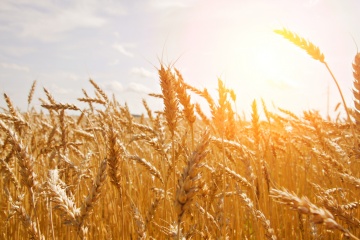
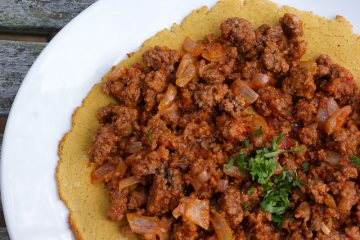
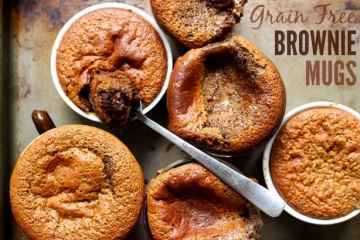

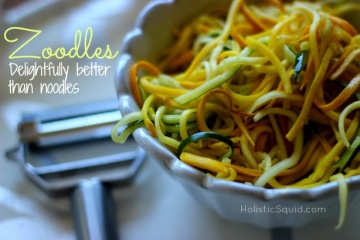
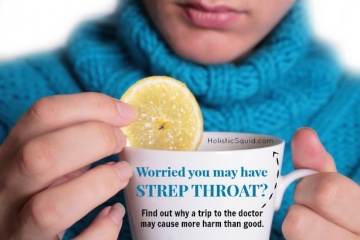



Hi
I just came across your site, I have a 9 month old son and although I never fed him rice cereal and started with veggies I recently started giving him oatmeal. He hates purees and still has a hard time eating finger food because he tends to gag on it and not get enough of it. He was waking up 4 to 5 times a night to nurse as well as eating every 3 hours during the day. I think because he is so active and just wasn’t eating enough calories. So i started giving him the oatmeal at night and he only wakes up 2 times to eat. BUt now im feeling really bad about it after doing some reading on your site. Do you have any suggestions as to what I can feed him to fill him up?
Thank you so much
Kirista
Hi Krista – Don’t feel bad, it sounds like you’re doing a great job, and oatmeal is not something to stress over, especially if he’s thriving. I would try introducing egg yolk and broth to his diet next… You can read more about they hows and whys in this post: http://www.holistickid.com/3-first-foods-that-your-baby-needs/.
Hi there,
Thanks for this great post! My family (husband, 2 year old son, and I) have been considering going grain free for a while now. I’d love to heal us all, especially my son so he doesn’t have to live gluten free his whole life. I haven’t been able to tolerate wheat for years, my husband tested “abnormal” on the celiac chart. I didn’t introduce grains into my sons diet until he was over a year and he reacted to gluten so he has been gluten free pretty much his entire two years of life. We are considering having another child…could I go grain free while pregnant??
Hi, I am very new to eating real food and keep reading conflicting things about my recent diagnosis of seborrheic dermatitis. Some say go grain free, others say go sugar free, or both. Another suggestion was to do the GAPS diet. I am feeling EXTREMELY overwhelmed since I just switched my whole family to a real food diet, and now I am afraid I will have to change everything again to be able to heal. I know it will be worth it, but do you have any suggestions or experience with this particular skin disorder? Any help would be so appreciated, thank you!
Hi Sarah, thanks for your question. I’d start with the real food switch and see how your body responds. GAPS is quite extreme, so the next step would be to do a simple elimination of all processed foods, sugar, grain, and dairy for 4-6 weeks. Assuming you see improvement, you can then reintroduce them one at a time with at least 1-2 weeks in between. I hope that helps!
I really like to warn you from doing any grain free diet on children who do not need to be on it. I witnessed my daughter develop a eating disorder from being overly obsessed with her diet eliminating total food groups when it wasn’t warranted. There are many healthy grains such as oats and quinoa and if you can handle whole grain wheat that too is good for you. This grain free fad is becoming dangerous for young kids.
I am still in school, I Dont even know really, this may be dumb but what are the basic foods that I CAN eat?
Hey Alexa,
The first thing to do is commit to either making food at home or – when shopping and eating out – sticking to a basic grain-free diet.
A basic grain-free diet means that you can eat meat, eggs, milk, cheese, fruit, and veggies. Once you venture into processed foods however, this gets murky. So stick with whole foods. It will be easier keep the grains out.
If you’re looking for food inspiration, swing by the Real Plans blog: https://realplans.com/category/gluten-free/
Good luck!
Emily xoxo
What about meats where the livestock are fed grains (which they’re not naturally meant to consume)? Like, chickens, pigs, and turkeys? I’m affected by grains and it just dawned on me that I’ve been eating meats in which the animals were fed grains. I’m also trying to cut back on beef simply because of the environmental impact.
Hey Alisa,
Source matters. A lot. When you can, try to shop for grass fed, grass finished and/or pasture raised animals. The best way to do this is to shop local and “know” your farmer. Whether this means talking to a rancher at your farmer’s market or seeing if you can find a butcher shop nearby that raises their own meat and pays attention to these details.
All the best!
Emily xoxo